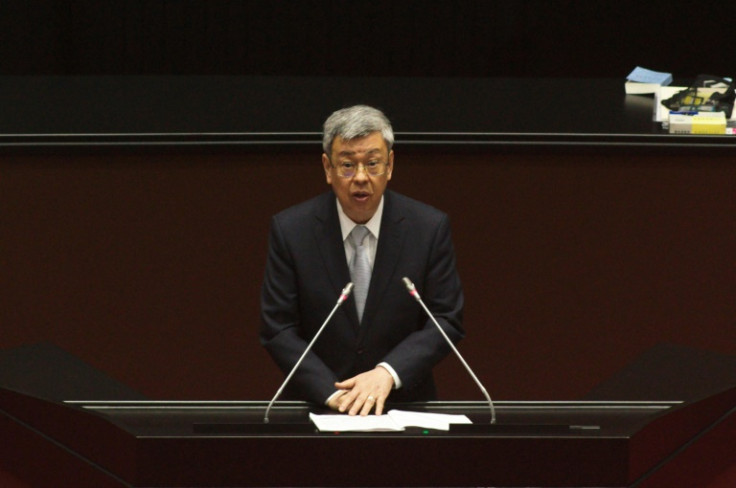
Taiwan called on Beijing to "be rational" on Tuesday following a deadly incident involving a Chinese boat and the Taiwanese coast guard, with the island's premier insisting it would protect its waters.
China considers self-ruled Taiwan part of its territory, and relations between the two have plummeted in recent years under the administration of Tsai Ing-wen, who does not accept Beijing's claim.
Last week two Chinese crew members died after a boat capsized near Kinmen, an island administered by Taipei but located just five kilometres from the mainland city of Xiamen.
It was being pursued by Taiwan's coast guard for being within prohibited waters.
China announced stepped-up patrols around Taiwan's waters, and on Monday members of its coast guard briefly boarded a Taiwanese cruise ship to check the captain and passengers' details.
Taiwan's Premier Chen Chien-jen said Tuesday that both sides had been aware of "restricted and off-limits sea areas" since 1992.
"Both sides have exercised their relevant law enforcement based on these boundaries," he told reporters outside Taiwan's parliament.
"We will continue to protect these sea areas to ensure safety in our territorial waters and the rights of our fishermen," he said.
"We hope both sides can be rational, equitable and cooperate with each other to ensure the safety of the Kinmen-Xiamen waters so that the people from both sides of the strait can engage with each other in a healthy and orderly manner."
Relatives of the two deceased crew were expected to arrive in Kinmen on Tuesday, while authorities said the two surviving shipmates would be repatriated.
Kinmen is a short boat ride from Xiamen, and it is not uncommon for Chinese and Taiwanese ships to accidentally enter the other's side.
Taiwan's coast guard has defended its actions during the pursuit that led to the deadly capsizing, saying the Chinese crew refused to cooperate with law enforcement.
The incident came against a backdrop of heightened tensions between Beijing and Taipei.
Last month Taiwan had a presidential election which ended in a win for the Democratic Progressive Party's Lai Ching-te -- a candidate Beijing considers a "separatist".
Beijing has never renounced the use of force to bring Taiwan under its control, and in recent years ramped up the rhetoric of "unification".
It has stepped up military pressure on Taiwan by deploying warplanes and naval vessels around the island on a near-daily basis.
Taiwan's defence ministry on Tuesday said it detected 24 Chinese warplanes around the island in the last 24 hours leading up to 6 am -- a slight uptick compared with recent days.







